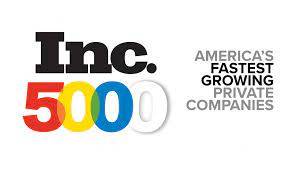 Guest Post from our partner, Nexcess.
Guest Post from our partner, Nexcess.
Despite the proliferation of third-party eCommerce platforms, self-hosting is still the best option for small and medium eCommerce retailers.
New eCommerce retailers have two basic options for selling products. They can choose a third-party eCommerce platform — the usual options are marketplaces associated with established eCommerce retailers. Amazon or eBay are typical examples. Alternatively, they can choose to self-host — use an open source or paid-for eCommerce application like Magento, with the infrastructure and networking handled by a hosting company, but with much of the application management left to the retailer.
There are advantages to both approaches, but for serious eCommerce retailers, I think self-hosting is the best option. It might seem a daunting option for new eCommerce retailers, and it’s true that there is more complexity involved, but the advantages of self-hosting outweigh the marginally increased technical burden.
Self-Hosted eCommerce Is More Flexible
Third-party eCommerce marketplaces are more constrained than self-hosted eCommerce applications. They offer retailers a simple experience, but to do so, they tightly control the platform. Retailers have almost no options for customization on these platform. Amazon-like platforms are essentially black boxes that offer little insight in the code that underlies the application. If you don’t stray beyond the cookie-cutter, you might be fine, but if you want to build bespoke features or design a unique experience, you’ll soon run up against frustrating limitations.
The Money Your Store Generates Is Yours
Self-hosted — the name can be misleading — eCommerce is hosted on a hosting provider’s servers. You pay for the hosting, but every penny that your store generates goes into your pocket.
That’s not true of eCommerce marketplaces, which monetize by taking a proportion of the value of a sale. For a retailer with narrow margins, that can take a significant bite out of their revenue.
Building Your Own Brand
If you own your store, you control its branding, its appearance, and the experience it offers customers. On a third-party service, your promotional efforts will be focused on building the brand of that service.
To be successful, a modern eCommerce retailer has to invest in content marketing, social media promotion, search engine optimization, advertising, and a multitude of other promotional strategies. If your store is your own, all of the benefits of that investment accrue to you. Otherwise, you’re spending money to drive traffic to someone else’s site.
You Don’t Have To Choose
There are strong arguments in favor of establishing an independent eCommerce store, but that doesn’t mean you can’t sell on third-party platforms. eCommerce applications like Magento can easily be extended to integrate with third-party eCommerce marketplaces like eBay and Amazon Marketplace. In this scenario, you get the best of both worlds — an owned resource that you control, and access to the built-in audiences of other platforms.
I often talk to eCommerce retailers who feel that self-hosting is a good idea in theory, but too complex to manage in practice. With a managed eCommerce host who understands retail, that needn’t be case. A good eCommerce host will take care of the heavy lifting, giving you the freedom and control you need to build a successful eCommerce store.
About Graeme Caldwell — Graeme works as an inbound marketer for Nexcess, a leading provider of Magento and WordPress hosting. Follow Nexcess on Twitter at @nexcess, Like them on Facebook and check out their tech/hosting blog, http://blog.nexcess.net/.

 Guest Post from our partner, Nexcess.
Guest Post from our partner, Nexcess.








